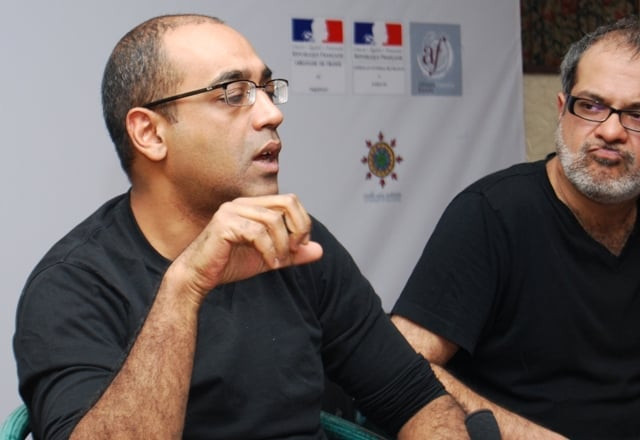Siddhartha Deb and the chinks in India’s shining armour
The author of The Beautiful and the Damned uncovers corruption.

Siddhartha Deb and the chinks in India’s shining armour
Naqvi noted that while “one of the more baleful legacies of Salman Rushdie is that there is a frivolity which characterises South Asian literature, Siddhartha is as far from that”. They were speaking at one of the sessions at the third annual Karachi Literature Festival on Saturday.
“He pays serious attention to the catastrophe that is our condition in South Asia,” Naqvi went on to say. “The book is about India but it shows us the truth of our condition at a much larger level.”
Deb’s book received a great deal of publicity before it was published because the first chapter - which was published in India’s Caravan magazine - offended the man it was based on. Entrepreneur Arindam Chaudhuri won an injunction against the chapter and stopped its publication in India. And so the book was published there without it. The edition available in Pakistan, however, does fortunately have the section, which is titled The Great Gatsby.
Deb said he wanted to write about the 'India Shining' slogan coined by the Bhartiya Janata Party and spend a lot of time with people - in the style of emergent journalism - who would be both rich and poor. In his quest to find the rich, he came upon Chaudhuri, who has a chain of management institutes in India and claims to be a management guru.
“I spent a lot of time with Mr Chaudhuri and colleagues and I went to his seminars and institutes. He’s a very interesting person to look at, he’s quite young, he wears designer suits and sunglasses and has a ponytail and there’s a sense of flamboyance. He represented something about the new elite in India.” But Deb’s portrait ended up noting how many of Chaudhuri’s claims to management institutes and programmes are not verifiable. This allowed the author to draw a parallel between the trickery of the management guru and the hollowness of the ‘India Shining’ mantra.
Deb spoke at length about how he worked on his book, the difference in gaining access to the rich and the poor, and the various kinds of corruption in India that isn't spoken about, such as the shadowy processes by which pensions are given to factory employees.
“I’m very proud of the reporting of the book that it takes you to places... the kind Tom Friedman doesn’t do... the book is a kind of a reaction to The World is Flat,” he said, referring to the New York Times’ columnist’s book. He questioned how superficial changes such as “getting a good cup of coffee in Bangalore airport” had come to mean that life had changed. But then, he pointed out, when you criticise these ideas or raise these valid questions, people label you a “leftie or... a Pakistani!”



















COMMENTS
Comments are moderated and generally will be posted if they are on-topic and not abusive.
For more information, please see our Comments FAQ